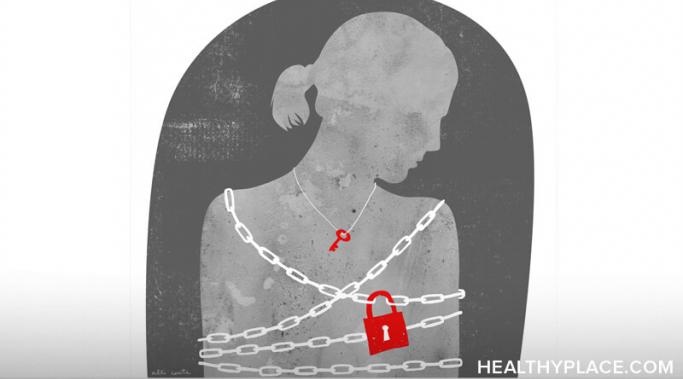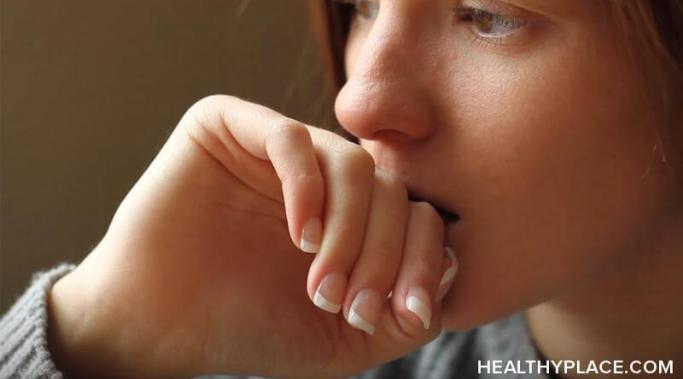Take a moment to think of your favorite media villain. I bet the character that just came to mind is portrayed as having a mental illness with a sprinkle, or more like a heap of dramatization for theatrical effect. Batman's Two-Face struggles deeply from poorly represented dissociative identity disorder (DID), as does Split's protagonist with the 23rd identity of Kevin being The Beast, an entirely fictitious representation that--intentionally or not--paints individuals suffering from DID as violent and inhuman. The cinematic tactic aimed at creating drama and bolstering a storyline comes with an unintended and paramount side effect: stigma.
Impact of Stigma
Do you ever feel like you never do anything right? I do. My baseline is feeling that everything I do is wrong to the point that feeling like I’m doing something right is a rarity. Anxiety keeps running questions in the back of my mind, whether I’m making the right decision, saying the right words, or doing the right thing.
As I’ve gotten older, I’ve learned that I’m someone who can become overwhelmed fairly easily. Sometimes, I think it developed in my adulthood, but maybe it’s just something I never noticed or had the words to identify as a child. Whatever the case, being overwhelmed negatively impacts my mental health, and I want to talk about it to address the stigma around it.
I’m struggling with my mental health. It’s such a simple sentence, but it’s a hard one for me to write. I’m already thinking of ways I might rephrase or rewrite this. Usually, I skirt around it, and I don’t think I’ve ever outright actualized it like this. If I have, it’s a rarity. Rarity or not, the truth is that things are not great at the moment. Depression and anxiety are weighing heavily, and it’s hard to function.
Death is hard for many people to understand, and feelings about it can be extremely challenging to put into words. When it comes to death by suicide, the challenge seems to become even greater. Think of all the ways you’ve heard suicide spoken about; unfortunately, a lot of it results in stigma and ignoring pain. (Note: This post contains a content warning.)
"Surviving Mental Health Stigma Blog" — that’s the name of this blog full of tips and advice to get through moments of stigma, overcome it, and so on. Often, that’s how I approach writing for this blog: what tips can I share? What have I gone through that might be useful to others? But then it struck me. Dealing with mental health stigma can quite literally be an act of survival. It’s not hyperbole. It’s not dramatics. Mental health stigma could literally lead to someone dying. I’ll elaborate. (Note: this post contains a content warning.)
I feel as though people like to think about incidents of mental health stigma as little pockets in time, but really, they live beyond the moments they happen. These are not compartmentalized or filed away. We know stigma can have negative impacts on a person, but understanding the depth of those impacts starts with understanding how long that moment of stigma can exist for a person.
Britney Spears' conservatorship has been a hot topic since she was able to say her piece in court on June 23. It's caused fans to rally behind her, supporting her as she struggles with being under other peoples' control for more than a decade and the impact that's had on her mental wellbeing. Perhaps ironically, it was a mental health crisis that kicked off the conservatorship, to begin with. I can't help but wonder, what has been mental health stigma's role in keeping that conservatorship in place?
Mental illnesses can have destructive behaviors that accompany them, and these behaviors can often be difficult to understand and, like mental health in general, cloaked in stigma. Because of that, addressing destructive behaviors linked to mental illness can be a challenge, but it's an important part of showing support to those who struggle.
Does mental health stigma make you feel like an imposter? I've been thinking about this question because the more I look at mental health stigma, the more I can see it entangled in certain aspects of the mental health conversation I didn't expect. Let's take a look at imposter syndrome and mental health stigma.









